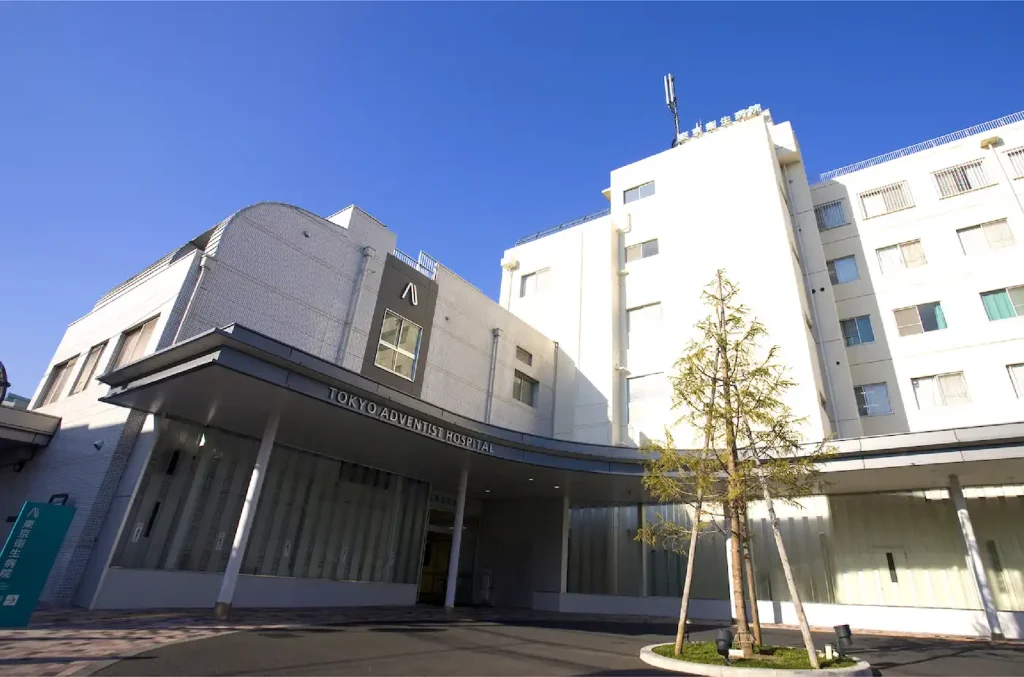Generator Usage Example: Hospitals

Problems Expected During a Power Outage in Hospitals:
- Medical devices essential for patient treatment and life support become unusable.
- Water pumps stop, halting water supply to rooms.
- No running water means toilets become unusable.
- Data on PCs without backups can be lost.
- All other electrical appliances become unusable.
To keep these devices running for an extended period (over 72 hours), installing emergency generators is essential.
Furthermore, having electricity ensures minimum lifelines, such as food, heating, and hot water for showers, for patients and staff.
The Need for Emergency Generators in Thai Hospitals
Emergency generators installed in hospitals are primarily intended to power firefighting and emergency evacuation equipment (such as sprinklers and alarms). For other necessary equipment, emergency generators designed for disaster-related power outages are required.
Power outages in medical settings are critical situations. In the United States, where lawsuits are common, hospitals face significant compensation costs if problems occur.
Due to their high quality and reliability, Generac emergency gas generators are widely adopted by American medical institutions as emergency power sources. They have also been installed in numerous hospitals, clinics, and medical offices in Japan, with a growing track record.
Is a UPS (Uninterruptible Power Supply) Enough?
A UPS switches to an internal battery to supply power instantly when commercial power fails. IT equipment and medical devices can malfunction if the power supply stops suddenly. Medical equipment-specific UPS units are available, but their battery capacity is limited.
Depending on the model and usage, a UPS can supply power for only a few minutes to a few tens of minutes, generally serving as a bridge until the emergency generator stabilizes. Thus, relying solely on a UPS is challenging for continuous operations, especially if a power outage occurs during surgery, as critical medical devices may become unusable in a short time.
Combining a UPS with an emergency generator capable of long-term power supply is essential to fully leverage the UPS’s benefits.
Generator Usage Example: Nursing Homes and Care Facilities
Long-term power outage measures are essential for nursing homes in Thailand and care facilities in case of disasters disrupting lifelines.
As the aging society progresses, the construction of nursing homes and care facilities is advancing nationwide. However, many facilities have yet to establish BCPs (Business Continuity Plans).
Advanced operators actively adopt BCPs (Business Continuity Plan), review disaster responses, install emergency generators, and brand themselves as “reliable facilities” through these measures.
In welfare facilities, lifelines like electricity, gas, and water must be restored to care for residents. Facilities are increasingly installing emergency generators to ensure power supply during disasters.
By setting up emergency LP gas generators and disaster-use LP gas bulk tanks, facilities can continue providing energy for life support medical devices, meals, heating, and hot water for showers during earthquakes or other disasters.
*Consult medical equipment companies, doctors, and hospitals before using generators for medical devices.

Proven Track Record in Medical and Welfare Facilities

Generac’s LP gas emergency generators are widely adopted as emergency power sources in American medical institutions, renowned for their high reliability.
They are compact and can be installed in tight spaces. During disasters, nursing homes, medical institutions, and elderly care facilities can experience power outages, leading to:
- Medical devices critical for resident health and life support become unusable.
- Water supply stops as pumps cease to function.
- No running water means bathing and laundry become impossible, and toilets become unusable.
- Lack of lighting hinders care and assistance.
- Elevators and lifts stop, making movement difficult.
- Emergency communication devices like nurse call systems become unusable.
- Power outage stops PCs, and charging mobile devices becomes impossible.
In the United States, hospitals face high compensation costs for issues. Generac’s LP gas emergency generators, trusted for their reliability, are widely used in American medical institutions.
They are suitable for securing minimum lifelines in nursing homes in Thailand, medical institutions, and elderly care centers, offering robust emergency power solutions.
Generator Usage Example: Hotels and Shopping Malls
Generac emergency generators, holding the No.1 market share in the U.S., are reliable power sources used in supermarkets, convenience stores, hotels, shopping malls, hospitals, and public facilities.
Their gas-powered water-cooled gas engines can generate ample power for large and commercial facilities in Thailand, making them ideal for disaster power outages, emergency preparedness, and BCP measures.
Supermarkets and convenience stores in Thailand can install emergency generators to provide power and food to evacuees during earthquakes and other disasters, contributing to local disaster preparedness.
By utilizing leasing and credit options, businesses can manage monthly lease payments as expenses, avoiding large purchase costs.

Generac emergency generators offer diverse options to suit various needs, with fuel choices of LP gas or city gas and power options of single-phase or three-phase, based on installation conditions.
Generator Usage Example: Supermarkets and Convenience Stores

Disaster power outage measures are crucial for supermarkets and convenience stores handling food.
Ensuring power for freezers and refrigerators to maintain food freshness and preventing stoppages of in-store lighting and POS systems requires reliable emergency power sources.
Installing LP gas emergency generators ensures continued operations during power outages.
Generac’s commercial generators are known for their quiet operation and ability to function under harsh weather conditions.
They support LP gas and city gas, offering affordable single-phase and three-phase generators for disaster preparedness and BCP measures.
By using Generac emergency generators, supermarkets and commercial facilities can continue operations during power outages, contributing to local disaster preparedness and community support.